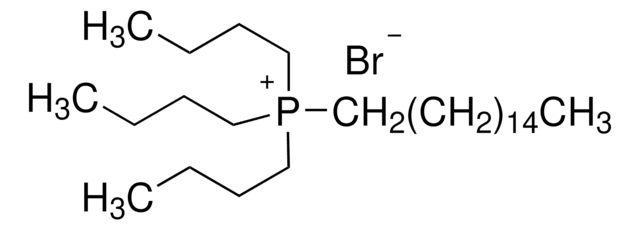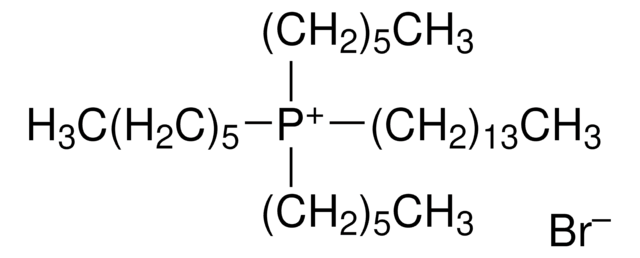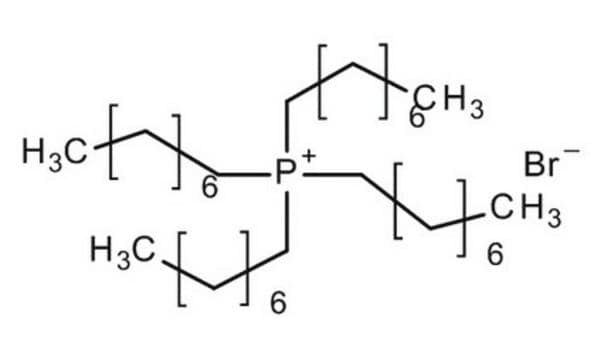189138
Tetrabutylphosphonium bromide
98%
Synonym(s):
Tetra-n-butylphosphonium bromide
About This Item
Recommended Products
Quality Level
Assay
98%
form
solid
greener alternative product characteristics
Catalysis
Learn more about the Principles of Green Chemistry.
sustainability
Greener Alternative Product
mp
100-103 °C (lit.)
greener alternative category
, Aligned
SMILES string
[Br-].CCCC[P+](CCCC)(CCCC)CCCC
InChI
1S/C16H36P.BrH/c1-5-9-13-17(14-10-6-2,15-11-7-3)16-12-8-4;/h5-16H2,1-4H3;1H/q+1;/p-1
InChI key
RKHXQBLJXBGEKF-UHFFFAOYSA-M
Looking for similar products? Visit Product Comparison Guide
General description
Application
- As a medium to disperse ruthenium catalyst for the synthesis of ethylene glycol from synthesis gas via ruthenium melt catalysis.
- As a catalyst supported on silica or alumina for the halogen exchange reaction to synthesize alkyl bromide from alkyl chloride.
- To synthesize various ionic liquids on mixing with different proportions of 1,3-dimethylurea for capturing NO gas.
- As a hydrogen-bond acceptor along with levulinic acid as a hydrogen-bond donor for the preparation of deep eutectic solvents to separate toluene from toluene/n-hexane mixtures.
- To prepare ionic semiclathrate hydrates.
Signal Word
Danger
Hazard Statements
Precautionary Statements
Hazard Classifications
Acute Tox. 3 Dermal - Acute Tox. 4 Oral - Aquatic Chronic 2 - Eye Dam. 1 - Met. Corr. 1 - Repr. 2 - Skin Sens. 1B
Storage Class Code
6.1C - Combustible acute toxic Cat.3 / toxic compounds or compounds which causing chronic effects
WGK
WGK 1
Flash Point(F)
554.0 °F - closed cup
Flash Point(C)
290 °C - closed cup
Personal Protective Equipment
Choose from one of the most recent versions:
Already Own This Product?
Find documentation for the products that you have recently purchased in the Document Library.
Our team of scientists has experience in all areas of research including Life Science, Material Science, Chemical Synthesis, Chromatography, Analytical and many others.
Contact Technical Service












